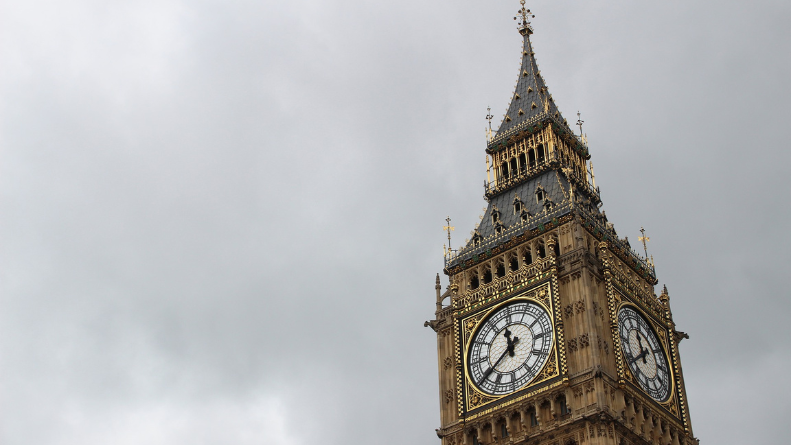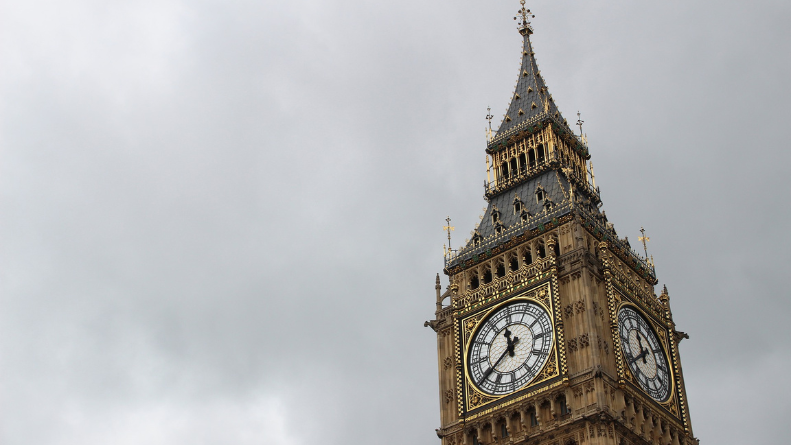UK Government: Standards for Rented Homes
With the proposed Decent Homes Standard, published on September 2nd, 2022, landlords in the private rental sector would be required by law to maintain their properties to an acceptable level.
The government is soliciting feedback on plans to mandate “decent homes” in the private rental market. A reasonable housing standard has been in place in the social lease sector since 2001, and these measures would bring the private rental market in line with that.
After a decade of tenant protection laws, including the Housing and Planning Act of 2016, the Homes (Fitness for Human Habitation) Act of 2018, and the Tenant Fees Act of 2019, this newest consultation is welcome and will protect both tenants and landlords alike.
The government noted in its press release on the white paper that “the conditions of more than half a million properties – or 12% of households – pose an imminent risk to tenants’ health and safety”. Applying minimum standards to the sector for the first time, alongside the other proposals outlined in the bill, aims to “halve the number of poor-quality rented homes”.
The government presented a historic white paper for the private rental sector on June 16, 2022. The report detailed their proposals to eliminate Section 21 notices, create a new ombudsman, and cap annual rent increases at 2%.
What implications would a Decent Homes Standard have for landlords and property managers?
If new rules are implemented, some landlords may face significant costs to bring their rental homes up to code.
Many private landlords in England currently exceed rigorous requirements, while others do not meet the same standards, and the government estimates that almost a quarter of England’s 4.4 million privately leased properties are in poor condition and in need of improvement.
In its consultation, the government has asked if privately leased homes must be kept in very good shape, including effective heating, sufficient amenities, and safety from serious threats such as considerable moisture or fire risks.
The new standard would be mostly the same as the current standard in the social rented sector, with a few changes to account for the different needs of the private rented sector. For example, the age requirement for bathrooms and kitchens would be removed, and existing requirements to meet minimum energy efficiency standards would be reflected in the new standard.
There is now an open consultation asking for feedback on whether or not to implement these new standards and how best to enforce them.
What does the government say?
Housing Secretary Greg Clark said:
“I want to see a thriving private rented sector, but that does not mean that tenants should have to suffer homes that are not of decent standard. This consultation asks what the minimum standard for privately rented homes should be.”
Alicia Kennedy, Director of Generation Rent said:
“We welcome these plans to extend the Decent Homes Standard to private rented homes. As the private rented sector has grown to overtake the social sector in size, not enough action has been taken on the poorer conditions private tenants must put up with. Private rented homes are more costly to heat and at a higher risk of disrepair and damp problems. There is no reason why private tenants should expect a worse service than social tenants. This crucial measure will help tenants get value for money, whoever they rent from, and stop landlords from profiting by cutting corners.”
Gavin Smart, Chief Executive at Chartered Institute of Housing said:
“All renters should be able to live in decent, well maintained homes. We welcome the commitment to introduce a new Decent Homes Standard to the private rented sector as part of the government’s new deal for renters. We look forward to seeing the details set out in the consultation and discussing the proposals with our members.”
What will the cost be and what proportion of landlords currently meet the proposed Decent Homes Standard?
According to the government’s consultation, about 79% of private rental sector (PTS) properties are up to code as is and don’t need any upgrades. However, 21% of homes still fall short, necessitating costly improvements.
The government has not provided any estimates of the potential financial impact this may have on individual property owners. Yet, “most landlords will be able to meet these costs.” as the paper puts it.
The consultation also asks for feedback on whether a “cost cap” on the changes that need to be made, with an upper limit on how much landlords are expected to spend, is reasonable, given that the standard is about safety.
According to the white paper, what is “decent”?
According to the government’s white paper outlining the new minimum criteria for rental accommodation, a “decent” dwelling must be “free from the most serious health and safety hazards, such as fall risks, fire risks, or carbon monoxide poisoning”
In other words, in practical terms, landlords will have to prevent the deterioration of rental properties by fixing issues before they become more serious and costly.

The kitchen and bathroom areas must be situated appropriately, be of sufficient size and age, and have proper soundproofing. Landlords will also be obligated to provide their renters with up-to-date amenities “before they reach the end of their lives” ensuring that their tenants’ dwellings are comfortable, safe, and suitable for their needs.
Furthermore, the government has reaffirmed its commitment to bringing as many private leased houses as possible up to Energy Performance Certificate (EPC) band C by 2030, alongside its ambitions for the new decent homes standard in the private rental sector.
Local governments will be able to offer “advice on pre-emptive work for properties that are likely to become non-decent in the near future,” according to the consultation.
Property portal
Private landlords, according to the consultation, will have to use the Property Portal to list their rental properties once it goes online. By doing so, both landlords and tenants will have a better idea of whether or not the property is up to code.
Landlords would “use the Portal to self-declare whether the property is decent” and “declare any exemptions for their property,” with a £30,000 fine for providing incorrect or misleading information.
Proposed enforcement of the new standard
Presently, local authorities are obligated to investigate complaints about unsafe conditions in privately leased homes and take appropriate enforcement measures against the landlords.
The Decent Homes Standard is a minimum standard for rental properties, and the consultation suggests making it “a legal duty on landlords to ensure their property meets the Decent Homes Standard.” A violation of the criteria would constitute a criminal offence and a “banning order offence” with some exceptions (such as historically significant buildings that are listed).
As the white paper puts it, councils will be able to “crack down on non-compliant landlords while protecting the reputations of responsible ones.”
What is the current Decent Homes Standard?
All social housing, with the exception of leasehold and shared ownership properties, is subject to the standard and rating system, which are currently being revised. The standard lays out four criteria to define what is considered decent; in the future, private rental properties may be required to meet these same criteria. There will be a final decision on the review by the end of 2022.
A home is considered safe and decent under the decent homes standard for social housing if it satisfies the following four requirements, the goal of which is to “bring health benefits to tenants and reducing health inequalities”
- It meets the current statutory minimum standard for housing
- It is in a reasonable state of repair
- It has reasonably modern facilities and services
- It provides a reasonable degree of thermal comfort
On what criteria is the current Decent Homes Standard evaluated?
Using the Housing Health and Safety Rating System, buildings may be checked for potential dangers and given a score based on how safe they are for residents.
Under this framework, it evaluates 29 distinct dangers with a special focus on them. There is a numerical rating attached to each potential threat.
Those with a score above 1,000 are considered critical since they pose a threat to the tenant’s health or safety and don’t fulfil the basic requirements.
Research from 2021 estimates that 12 percent of low-quality dwellings are controlled by local governments and non-profit housing organisations, despite the fact that two million residences represent a major hazard.
If major risks are found, steps should be taken to fix them, unless doing so would cause “disproportionate costs or disruptions.”
If a tenant doesn’t want necessary repairs done, the landlord can wait until the next vacancy to get them done, but they should warn the renter about the potential dangers while remaining in the property.
Reasonable state of repair
The decent homes guidance says that a house is not in a “reasonable state of repair” if one or more “key” building components need to be replaced or need major repairs due to age, or if two or more “other” building components need to be replaced or need major repairs.
There are many different building components, some of which are visible from the outside, like the roof or chimney, and others that are hidden from view, like the plumbing or electrical systems that keep a home running.
Reasonably modern facilities and services
For this criterion to be met, both the kitchen and the bathroom must be under 30 years old, and the kitchen must have sufficient space and a well-designed plan and be no more than 20 years old.
There also has to be enough room in the shared entrances and good soundproofing.
Complying with this standard may be difficult for some sites because of “physical or planning restrictions” that prevent some renovations from being made. The property will not fail to meet this criterion if the applicable agency or organisation determines that the improvements are impracticable.
In some cases, “demolition and new build may be more appropriate” as stated in the decent homes guidance, meaning that modifications are unnecessary.
Reasonable degree of thermal comfort
For a home to qualify, it must have reliable heating and adequate insulation.
Under the HHSRS, landlords are responsible for making sure that their tenants have access to enough heating in the property, whether or not the system can heat two or more rooms.
Landlords should view the installation of a new heating system as an opportunity to improve the building’s energy efficiency.
Oil and gas heating have different efficiency requirements than other heating systems.
Cavity wall insulation or at least 50mm of loft insulation is needed for oil or gas. This is raised to 200mm for loft insulation when solid fuel programmable heating or electric storage heaters are used.
ARE YOU READY TO START INVESTING?
Subscribe to our mailing list now for exclusive deals, investment guides and the latest information from the property market.







